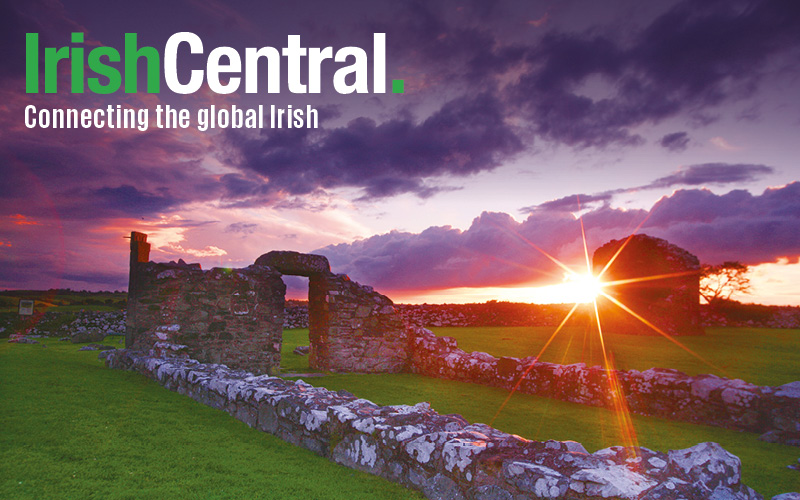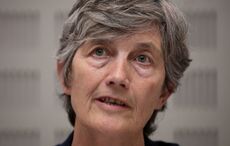David McWilliams is Ireland's most talked about economist for a reason. He's whip smart, opinionated, and acidly funny. He talks to CAHIR O'DOHERTY about his new book The Pope's Children, which describes how the Irish economic boom got going and hints optimistically at where it's likely to lead. "IT'S amazing how much a few quid can do for a person - or a country," David McWilliams, the well-known Irish economist and author, tells the Irish Voice. "It's become fashionable lately for people to say that we've become meaner and more materialistic in Ireland, or that we're losing our essential character. But that's all nonsense. We all used to stab each other in the back here, remember? "The fact is now we have a few euros in our pocket and we're feeling more expansive. We're even planning for the future - which is a completely revolutionary change in Ireland. We're not looking to the past, we're looking ahead."Author of two runaway bestsellers in Ireland, and host of The Generation Game, a bitingly funny analysis of the New Ireland broadcast by Irish state network RTE, McWilliams, 40, is the economic wunderkind and prophet of the Celtic Tiger economy. He's in New York this week to launch his newest book, The Pope's Children (Wiley). If the rate of change in Ireland gives the growing numbers of returning migrs the bends it's no wonder. In just over a decade Ireland went from being the poor relation in the European Union to the second richest nation on earth. In 2005 tiny Ireland received more American direct investment than China. The little island that for centuries hemorrhaged its people is now absorbing more immigrants per head than most other states in the European Union. Today Ireland has become the poster child for the benign effects of globalization, and McWilliams himself is astonished at the wonder of it all.We're the only country in the world that has outpaced Asian growth rates, while maintaining our American lifestyle," he says.Our American lifestyle? In Tubbercurry, Co. Sligo say? "Oh definitely," replies McWilliams. "The ultimate conclusion of the book is that Ireland has become American. We're just Connecticut with s***ty weather. In many ways the American dream just floated gently across the Atlantic, and the new Irish dream is not that dissimilar to the new towns in Arizona."The funny thing about The Pope's Children is that Williams didn't conceive it as an economics book, even though he's a celebrated economist. Instead he wrote what is a brilliant (and frequently hilarious) meditation on what happens to a society when it moves from an economic underachiever to an economic over achiever - and how this actually changes that society. "Ireland is a rich Eurocentric country that managed in the era of China and India to out-Chinese the Chinese. Ireland has managed in the last 15 years to get twice as much foreign investment from the U.S. as China and India combined. There are only four million of us. That's interesting, that we can punch that high above our weight."Williams compares the Irish economy to a melting glacier, where the heat of the economy causes the rapid changes, melting away old shibboleths, old ways of thinking about Ireland and its relationship to the world. Says McWilliams, "What Americans will hear this week at events built around St. Patrick's Day is completely off the mark from the Ireland I actually live in. Celtic Tiger Ireland is a completely different beast to the Ireland of the Ancient Order of Hibernians, say. "And it's hard to reiterate that because I feel so at home in America. America is very like Ireland. We have all the same social problems."One noted American company that has thrived whilst its competitors have struggled is Apple. As it turns out the company's success helps to illustrate a central point of McWilliams' argument in The Pope's Children.Says McWilliams, "Do you remember slow dance sets at discos in Ireland in the 1980s? As a red haired man I have a pathological fear of slow dance sets. I still break out in a cold sweat when I hear the opening bars of Spandau Ballet's song 'True.' Now, nobody really has a comparative advantage during the slow set, did they? The world, it turns out, is just divided into flirts and wallflowers. And then below that the red heads. "Well, the world economy works in exactly the same way - like a large slow set. No one has any comparative advantage in anything for long. No company has any comparative advantage for long. Everyone has a temporary monopoly. To thrive, the key is to get noticed." Fast forward to the young Steve Jobs, Apple's famous CEO, realizing that Apple has to flirt with the consumer to get their attention. So that's exactly what he does, and he does it amazingly well. Almost too well, to hear McWilliams tell it. "I'm tired of Mac owners looking down their nose at little PC plebeians like me. They haven't achieved a higher state of grace. But it is an extraordinary example of the use of soft power," McWilliams feels.For McWilliams culture is as important an economic marker as the economy and he writes with authority - although with his usual brio - about the seismic changes that Ireland has undergone."We've all become Protestant, which is a very unusual development. There's a chapter in the book called 'The Protestant Catholics' that argues that Irish Catholics have abandoned the communal, collective view of society that Catholicism teaches us. They've become individualists. "We've actually had a Reformation without witch burnings and bloodshed. In our heads we've become Protestants. It's been a crucial change of mindset, for the first time ever Irish people can live in the future."In the Ireland of McWilliams' childhood everything that defined the nation seemed to be located in the past - the Famine, Pearse, Connolly, 1916, the Civil War, etc. Ireland was an open-air mausoleum, a haunted house. For McWilliams the New Ireland, the forward-looking Ireland, is the most dramatic change of his lifetime. Says McWilliams, "The Irish mythology was based largely on the glories of our past. In America it has always been about the reinvention of today and hope for tomorrow. That also had to do with the availability of credit in the United States. Once you had credit you could dream of the things you can actually dream of the future. "Ireland's got credit in the last 10 years, and now we have this new Irish dream. It may be summed up in silly things like walk in fridges, decks out back, and barbeques, but ultimately Irish people now have a dream of the future which we never had before."Time traveling to a better day, reformations in social interactions, soft power - these are the economic pillars of the new Ireland, and McWilliams is more than satisfied with them. He frankly embraces them. The very essence of the American dream - the house in the suburbs, the car, the family - have become realities in Ireland. People are living their lives in a contented autonomous way that they never did in the past. That's the liberating power of a few quid. There are weaknesses in this unfettered globalization system too, as McWilliams admits. The fact is that the Irish housing market is in slowdown mode (McWilliams calls it "tanking a wee bit"), and they've got problems. Young Irish people have bought into the dream that the housing market would continue to rise like a social conveyor belt, and that this would ensure everyone was going in the right direction. Everyone would become rich. But the conveyor belt has stopped, and its anyone's guess what will happen in the next few years. "There may be, as in the U.S., a disproportionate impact in Ireland's new suburbs. It's too early to tell," says McWilliams.His book tour will take him to the prime time studios of every major television network in the U.S., and there's no question he's ready for his close up. It will be interesting to watch the flame-haired young Irishman explain to American viewers how Ireland has purloined t




Comments